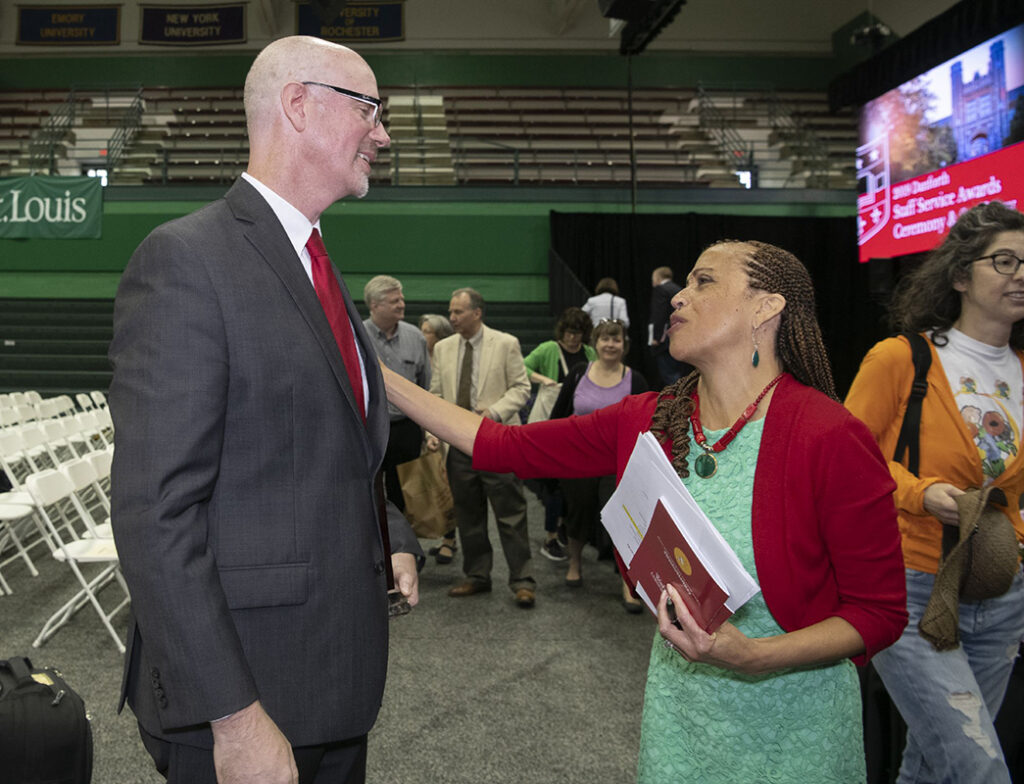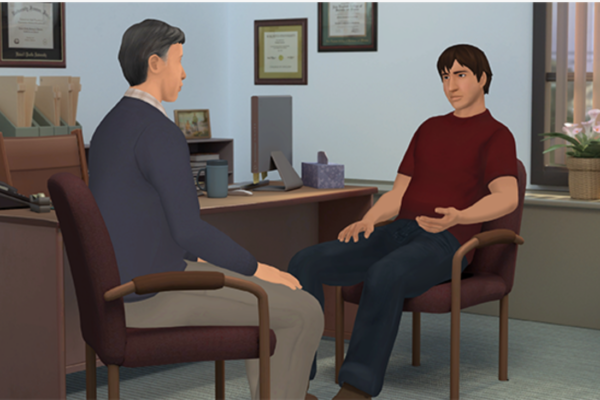
Thomas Brounk, director of mental health services at Habif Health & Wellness Center, received the Gloria W. White Distinguished Service Award at the annual Washington University in St. Louis Staff Day celebration May 20 in the Field House.
Chancellor Mark S. Wrighton praised Brounk for his tireless advocacy on behalf of students and his responsiveness, flexibility and guidance during a crisis.
“Dr. Brounk has led his team with steadfast focus on the emotional wellness of our students,” Wrighton said. “He has built a staff committed to providing exceptional, confidential and inclusive care for all students with the goal of working collaboratively with students and the greater campus community to improve overall quality of life.”
Brounk has served as director of mental health services since 1999. In that time, he has expanded services for students and provided new resources for student populations with unique needs, such as LGBTQIA, first-generation, low-income and international students as well as student veterans.
“He is an unsung hero, quiet, patient and giving,” said Wrighton, reading from staff counselor Jessica Dyer’s endorsement for Brounk. “Anyone who knows Dr. Brounk personally or professionally knows he gives his heart for the betterment of Washington University.”
The Gloria W. White Distinguished Service Award was established in 1998 and celebrates the legacy of White, a campus leader for some 35 years until her death in 2003.
In his acceptance remarks, Brounk thanked his early champions such as Alan Glass, MD, assistant dean of admissions for the School of Medicine and former director of Student Health Services, and Karen Coburn, senior consultant in residence and former assistant vice chancellor for students, as well as current Student Affairs staff and leadership.
“When I call, it’s usually not good news and typically it’s time sensitive,” Brounk said to his colleagues in Student Affairs. “Thank you for always being responsive and serving as the critical eyes and ears in identifying and referring students in distress.”
Brounk shared that his own experience with a college therapist led him to this work.
“In 1984, I was a college sophomore struggling with coming out to myself as a gay man,” Brounk recalled. “Times were different, and I struggled immensely. Despite my apprehensions, I decided to take a risk and talk to one of the college’s counselors.
“She helped me talk about something that was taking an immense amount of energy to keep a secret. She made a difference then and helped me see later that I wanted a career path close to her own, which would allow me to do something similar — make a difference in the lives of college students.”

